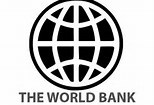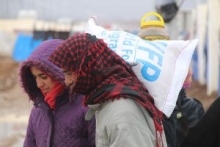
ERBIL May 30, 2016 – A new World Bank Group report proposes a series of reforms to enable Iraq’s Kurdistan Region to chart a path out of the difficult economic challenges it faces toward a more sustainable and diversified economic future. The combination of factors that have recently placed more pressure on the Kurdistan Region of Iraq (KRI) include fiscal crisis, close proximity to conflict, and influx of refugees and Internally Displaced Persons (IDPs). The proposed roadmap, Reforming the Economy for Shared Prosperity and Protecting the Vulnerable, serves as an economic guide to help policy makers address both immediate and longer term challenges in the KRI in the next three years. “The Kurdistan Region of Iraq has strengths and opportunities to get the economy out of crisis,” said Ferid Belhaj, World Bank Director for the Middle East department. “These include large natural resources, fertile agricultural land, a young and entrepreneurial population and a central and, so far, relatively stable location on major trade routes. It also has a government determined to implement reforms and a donor community eager to help.”
The Bank proposes a strategy that could pull the region out of its current fiscal crisis and gradually put the economy on a balanced and sustainable path to growth. This includes introducing economic reforms to strengthen the KRG’s capacity to isolate its core expenditures from external fluctuations in revenue. “Accompanying fiscal adjustment and structural reform measures, the KRG’s recent social protection framework should be strengthened and retooled to handle the ongoing social and humanitarian crisis.” said Sibel Kulaksiz, World Bank Senior Economist, and Lead Author of the Report. The report builds on previous analytical and technical World Bank assessments, and draws on the International Finance Corporation’s experience with the private sector in the KRI over the last few years. “Challenges are high, but our findings show that KRI has significant economic potential to diversify the economy through private sector development, and benefit from regional untapped opportunities in non-oil sectors which will be beneficial for the people in KRI,” said Rapti Goonesekere, IFC Principal Economist and co-Task Team Leader. The KRG has previously laid out broad objectives for its economic policy, with the diversification of its economy away from the oil sector being at their core. The immediate priority is to stabilize the economy without heightening socio-political fragility. Since the escalation of conflict in Syria and Iraq in mid-2014, a combined influx of 1.8 million Syrian refugees and Iraqi IDPs has imposed additional strains on the budget and service delivery. The poverty rate has doubled in KRI host communities, with even higher increases in poverty among refugees and IDPs. KRG is providing public goods for the entire region and delivering services to this increased population. A World Bank study carried out jointly with the KRG Ministry of Planning estimated stabilization needs in 2015 at US$1.4 billion.
“The success of these reforms, and the region’s ability to deal with multiple shocks, will require support from KRG’s partners,” said Dr. Ali Sindi, KRG Minister of Planning. “Our Government welcomes this economic reform roadmap and is fully committed to implementing reforms to secure fiscal consolidation in the short-term and achieve sustainable and inclusive growth in the KRI in the medium-term while protecting our people from the impact of multiple crises through robust social mitigation measures.”
Source: The World Bank, May 30, 2016







Comment here